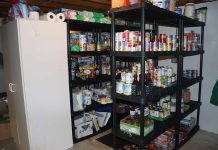
(Daily360.com) – The Supplemental Nutrition Assistance Program is a staple for low-income earners in the United States. Also known by its acronym “SNAP” and by the older term “food stamps,” the Supplemental Nutrition Assistance Program has many qualifications and other rules, some of which will increase or decrease what a SNAP beneficiary is eligible for over time. In addition to income, one of the most important factors for SNAP eligibility is rent: that is, how much you spend on it, whether you have other family members contributing, and whether you are the person paying rent or someone receiving money towards household expenses in a home under your financial purview.
Many times, housing situations change suddenly: a landlord decides to sell a home they’re renting to you; you’re exiting a painful or dangerous relationship (or hopefully, entering into a healthy relationship as co-habitants; you’ve gotten a new roommate or three; or, your parents are coming to live with you or vice versa. All of these things can dramatically impact your SNAP benefits. And, like most government-administered programs, there are many, many rules. Here’s what you need to know about how your rent impacts your SNAP benefits and what to do when your housing situation changes.
Renting and SNAP Benefits
If you’re renting your place of residence, you’ll recall that your SNAP application initially asked many questions about income and rent. While it may be the best move to head into a lower rent or rent-free situation, these circumstances can heavily impact your SNAP benefits. In particular, if you choose a rent-free situation, you’re almost sure to have your SNAP benefits lowered or canceled. (Depending on how much you’re saving by having no rent, this change could still be good for you.)
However, if you’re living with family, for example, and contribute financially, that’s rent, and your benefits could go up, especially if you were in a rent-free situation before.
Renting and Homeownership
Receiving SNAP benefits as a homeowner with household changes can be a little more complicated. If you’re the homeowner, and you’re getting rent from a person living in your home, the Internal Revenue Service (IRS) considers this “income,” even if you’re generally low-income and strapped for cash. So if a family member moves in and suddenly starts “paying rent,” your SNAP benefits are at risk of decreasing or being eliminated. That’s not great news for the household pantry.
However, you can do something to minimize the negative impact of receiving this “income.” You can prove to the IRS that this money goes directly towards utilities, repairs, etc., and that it is not “profit.” If you need the rent to fix the roof, that’s a reasonable explanation for the charge.
The easiest way to accomplish this is to avoid handling the money at all. Simply have your tenant pay a major utility bill directly to avoid complications. No matter how you handle it, though, you’ll need to keep your paperwork handy, because the IRS and SNAP will need those records, especially if there has been a change.
Keep in mind, you will want to consider utilities, insurance, security costs, trash collection, home improvements, and home repairs and keep track of those costs as well. They could get you a deduction.
What Happens to SNAP If Your Income Changes?
Any changes, but especially those in utilities, household rent, medical expenses, or income, are necessary to report. You should go directly to your caseworker with this info, and they can help you work through it and let you know if or how your SNAP benefits must be adjusted.
Copyright 2023, Daily360.com













